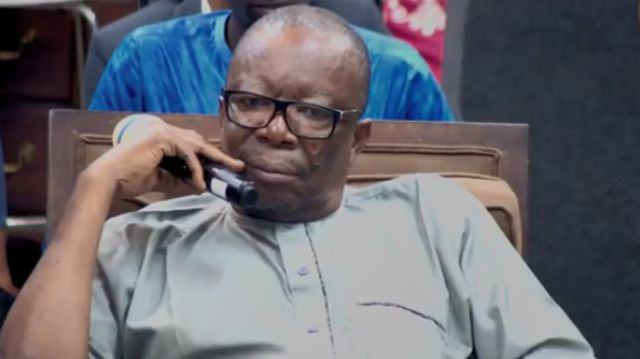Ngige welcomed the intervention of the House of Representatives in the ASUU imbroglio, saying he was happy that the Speaker, Femi Gbajabiamila said they were going to meet the President.
He said the intervention was timely considering that the President must have also consulted some stakeholders, adding that whatever money to be put in would go into the 2023 appropriation where the National Assembly comes in.
“If they have shown interest now, it is good and wonderful. When they bring that proposal, the Executive will not have any problem. ASUU should also know that this is a step in the right direction. And all these things have been promised them by the Minister of Education at their last meeting with him. For me, they should do the needful and get back to classroom.
He said the government would order the vice chancellors to reopen the universities in compliance with the order of court.
“The government would order the Vice Chancellors to reopen the universities in compliance with the order,” he said.
Continuing, he said, “Whenever there is hostility between employer and employee and conciliatory processes in motion, that has not been satisfactorily done to achieve peace and tranquility in the industrial enterprise in consonance, with Section 4 (6), the Minister of Labour, by Section 17, will transmit it to the National Industrial court for final adjudication.
“And once the transmission is done just like when apprehension is done by the Minister, the parties will return to status quo ante bellu and that is why we asked the court to look at this issue and look at the interlocutory injunction asked for by the federal government and pronounce that these these workers should go back and that these employers should open up the classrooms and the laboratories and everywhere for the students to go and benefits from the education.
“And the court saw with government and granted the request and even in granting the request, they said it. is of national importance to the development of education, and for the protection of rights of our children, to education, that the teachers so employed to teach them should go back and start teaching them pending the resolution of the issues raised from my office as issues in disputes.
“We listed them for the courts, seven of them, some of them about five of them conciliated, here satisfactorily for ASUU even during the strike.”
On the insinuation that ASUU was contemplating to appeal the ruling, he said, “Appealing, the order is within their rights to do so. But I don’t think is a good step. Because this order, this court order ruling does not stop us from further negotiations.
“As a matter of fact, the trajectory, like I said earlier is that the courts, in looking at the issues will constitute a panel either a panel of the courts, or what is called Alternative Dispute Resolution Panel, to look at the issues one by one.
“If the alternative dispute resolution panel is used, they will also make their report to the court, and the judge will make a pronouncement on it
“If the alternative dispute resolution is constituted there and the parties make a special request that they want to go back to their area of demonstration, which is either education or here to produce an acceptable agreement. The court can grant it to them. They did that before.
“I don’t know now but it is at the discretion of the court. So appealing it is neither here nor there. I don’t see anything that is injurious to anybody to necessitate such an appeal.”


